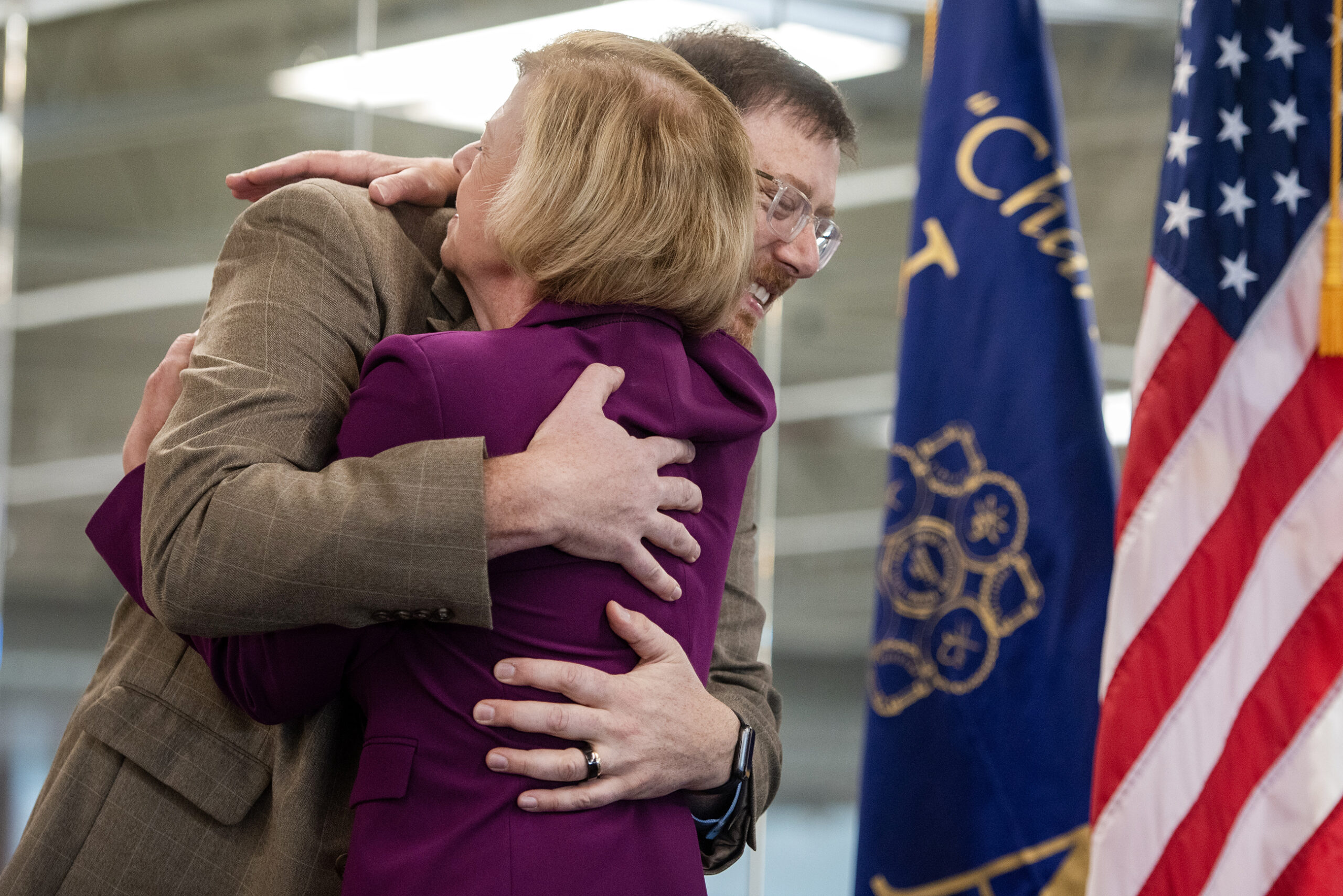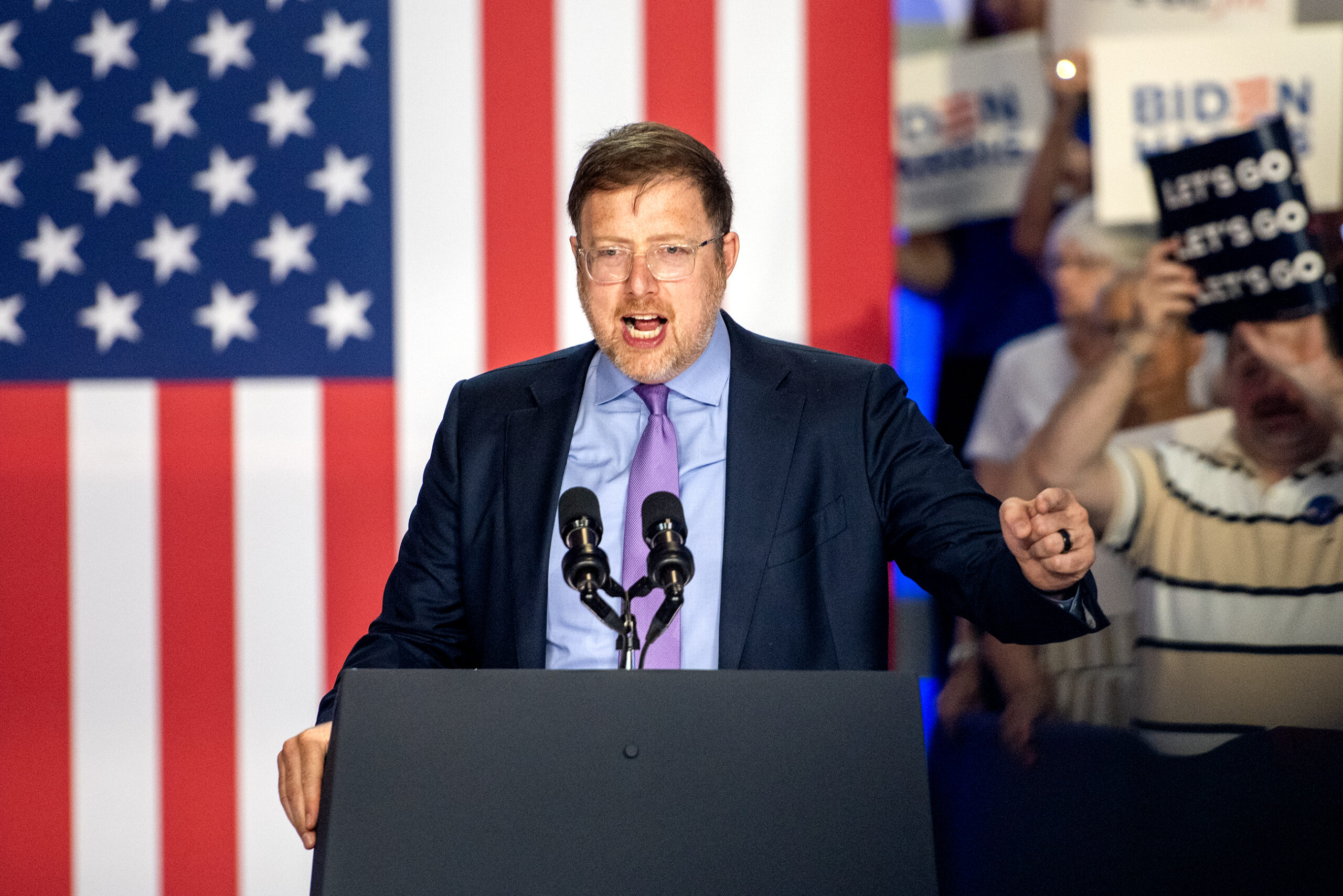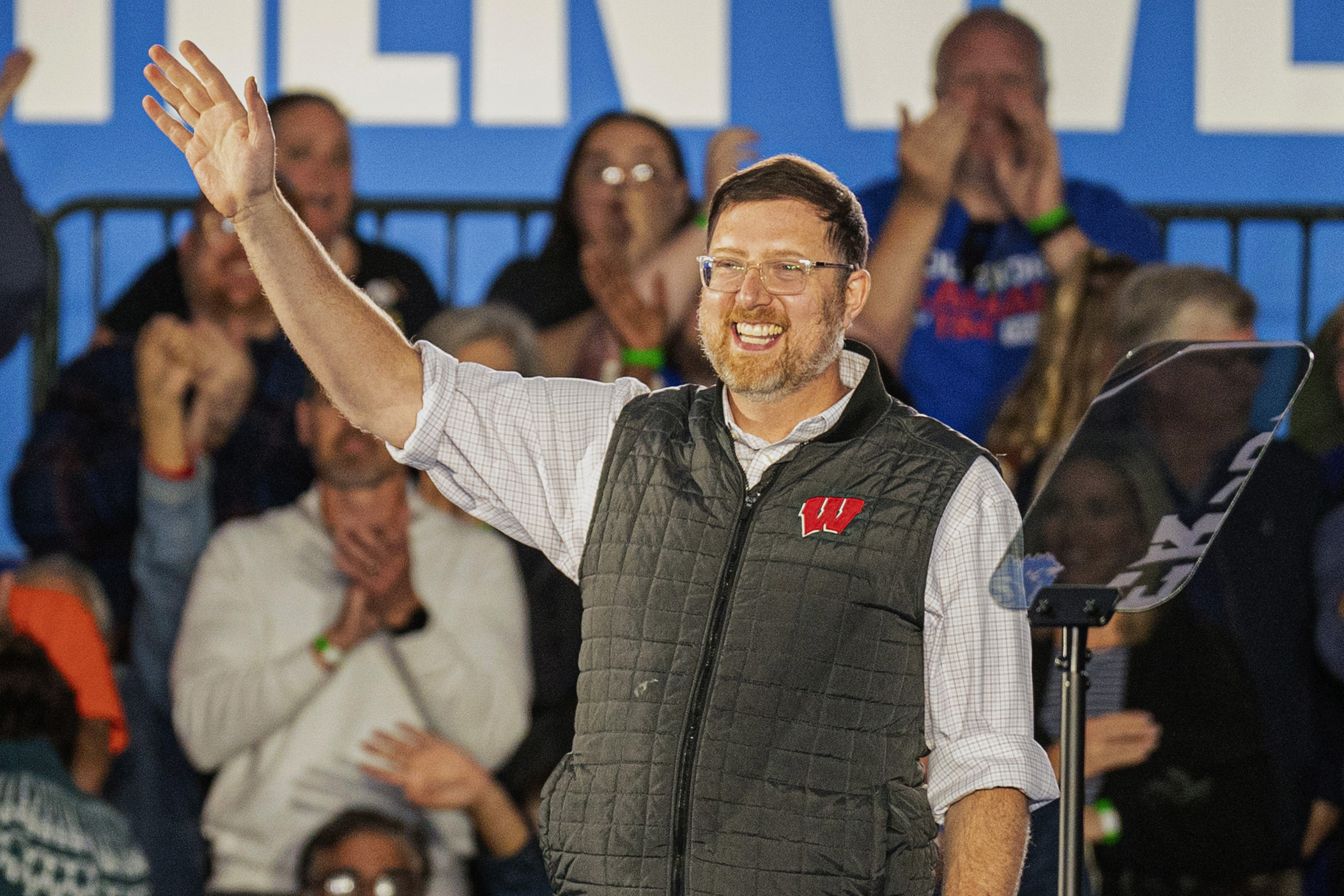The chair of Wisconsin Democrats is reportedly being considered for a national leadership position with the Democratic National Committee as the party recovers from a bruising election cycle and eyes a potential redirection, according to Politico.
Ben Wikler has chaired the Wisconsin Democratic Party since 2019, and is a widely respected figure in battleground politics. He is credited with massively expanding the party’s fundraising capabilities, drawing in tens of millions of dollars to fuel state races, and keeping Wisconsin competitive in a year where Democrats saw massive losses across the board, including in the race for the White House and control of Congress.
According to Politico, political insiders are floating Wikler’s name to chair the DNC as it reimagines its brand and strategy in the wake of those losses. Wikler is among a half-dozen figures being considered to replace current chair Jaime Harrison, who will reportedly not seek reelection.
News with a little more humanity
WPR’s “Wisconsin Today” newsletter keeps you connected to the state you love without feeling overwhelmed. No paywall. No agenda. No corporate filter.
Wikler did not respond to WPR’s request for comment.
He’s made his name in national circles by helping to transform the Wisconsin Democratic party into a campaign powerhouse, helping to solidify President Joe Biden’s win in 2020 and Gov. Tony Evers’ 2022 reelection, and to flip the state Supreme Court in 2023 to a liberal majority with the election of Judge Janet Protasiewicz. Her win was supported, in part, by a $10 million from the state Democratic Party.
Those big dollars were raised by leveraging of a GOP-authored campaign finance law that Democrats once decried — before using it to their advantage. The rules now allow for unlimited donations to filter through a state party. Under Wikler’s leadership, Wisconsin Democrats have used that policy to routinely outspend Republicans in state elections.

Democrats also propped up a long-term push to redraw state legislative maps in a way that cut into GOP majorities in Madison. Those new maps led to one area of good news for Democrats in an otherwise dismal election last week as they picked up four seats in the state Senate, ending a Republican supermajority there, and 10 seats in the state Assembly.
After last week’s electoral rout, Wikler pointed to Wisconsin’s narrower margin of loss compared to other swing states as a sign of relative organizational strength.
And throughout this election cycle, he received acclaim from national Democratic leaders. At the Democratic National Convention in Chicago in August, a series of guests at Wisconsin’s delegation breakfasts heaped praise on Wikler.
“You know that ‘Big Ben’ is recognized nationally as a preeminent state party chair,” said former House Speaker Nancy Pelosi of California. “His reputation is a great one.”
“This guy is one of the best chairs of a state party — not just today, but ever,” said Senate Majority Leader Chuck Schumer of New York.
Democrats face a reckoning after a difficult election for the party. Nationally, a Republican wave saw the reelection of former President Donald Trump, who won the popular vote for the first time in addition to the electoral college. Republicans also claimed the U.S. Senate and may also clinch the House of Representatives.
But that wave was less pronounced in Wisconsin. Trump’s winning margin of 0.9 percent was in line with Wisconsin’s historically close presidential elections, but was his smallest margin in the nation. And while the country shifted its support rightward by about 6 percent, the Republican shift in Wisconsin was just about 1.5 percent.
Wikler has been credited by some for staunching the bleeding in the Badger State. But according to Politico, the possibility of his elevation to national office may be opposed by some progressives within the party. That would set the stage for potential infighting in advance of what reporters and Holly Otterbein and Elena Schneider describe as potentially “the biggest and most unwieldy Democratic primary in history” in 2028.
Democrats will select their new leader in early 2025.
Wisconsin Public Radio, © Copyright 2025, Board of Regents of the University of Wisconsin System and Wisconsin Educational Communications Board.





